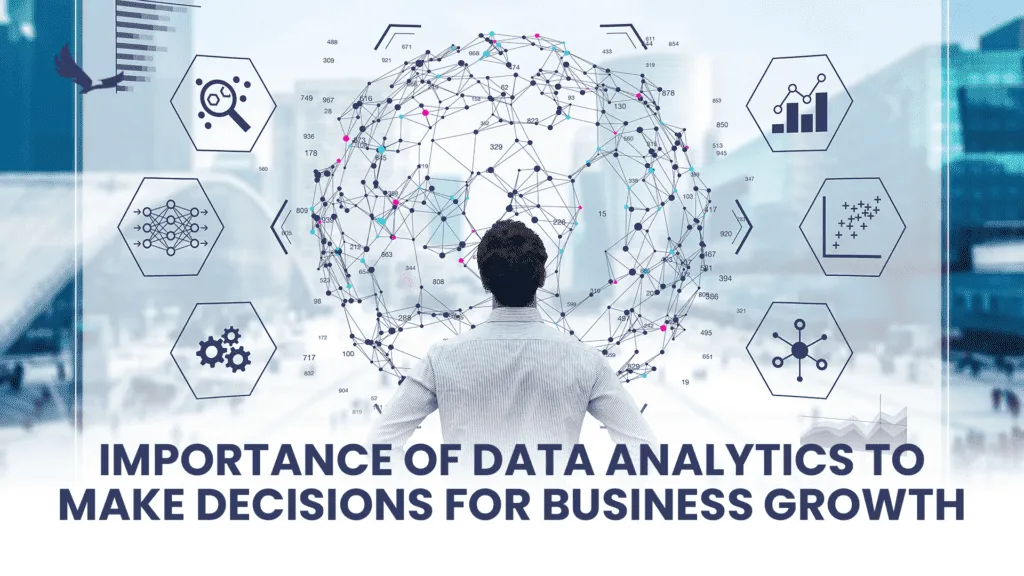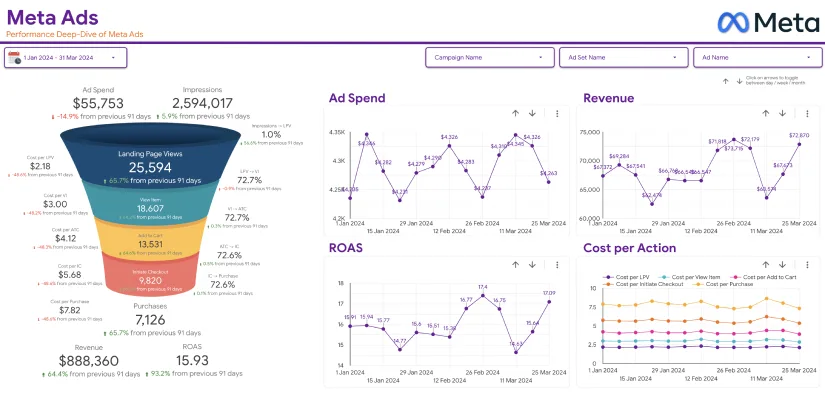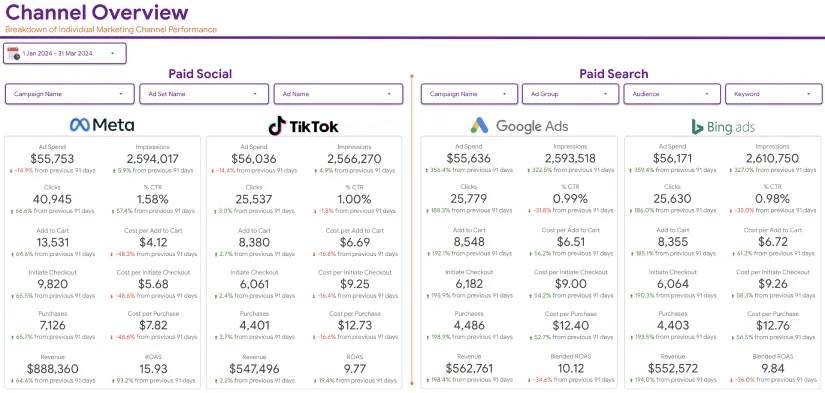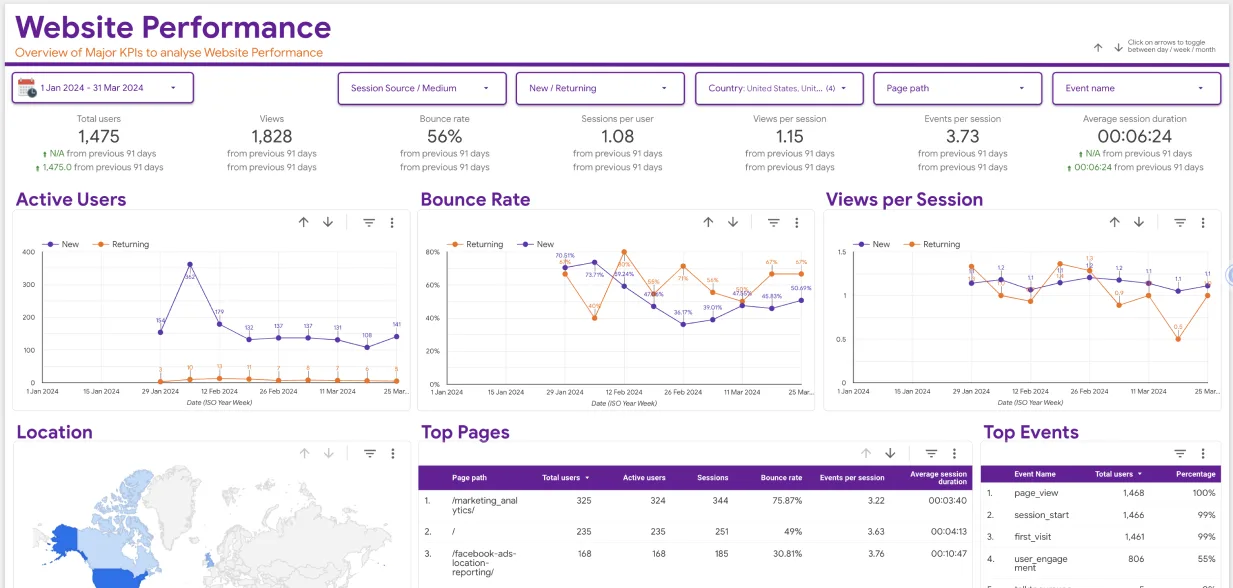In today’s advancing technological landscape, interpreting and collecting data has become more accessible. As a result, more businesses are shifting their focus from instinct-driven decisions to data-driven ones.
Leveraging data analytics has enabled many companies to explore valuable information that push them toward growth and prosperity. So, keep reading this article to examine the significance of data analytics in the decisions regarding the expansion and success of any business.
1. Understand the Customer Insights
The influx of customers is fuel for any business and its survival. Thus, the only way to achieve growth is by attracting more customers to the company. Data analytics helps to understand customer behavior by analyzing various data points.
Businesses can gather data from multiple sources such as the internet, social media platforms, website engagement, online surveys, and sales transactions. Also, companies can use techniques like conducting interviews and surveys physically to get insights into the preferences of their customers.
Different ecommerce analytic tool can help businesses to get important information regarding the demographic features of their customer base, like, their gender, age, preferences etc.
This information can be beneficial to prepare for future marketing ideas as they can customize their efforts based on that information. Furthermore, customer feedback and reviews analysis can reveal valuable information about customer satisfaction and areas for improvement.
Additionally, businesses can track browsing patterns on their website to identify popular products, pages, or features, allowing them to improve their website and product offerings accordingly.

2. Helps to Analyze Market Forecasts
While it is essential to work with present and accurate facts, it is often crucial to make predictions about future market trends. Businesses can use historical data and artificial intelligence to perform predictive analytics to anticipate future trends and outcomes.
For instance, retailers can check past sales data according to the seasons and forecast demand spikes during holidays or special events. With the help of these insights, businesses can ensure they have sufficient inventory levels and allocate resources efficiently to meet the anticipated demand.
Predictive analytics also helps to identify potential risks and threats, such as economic slumps. By being well-prepared, businesses can position themselves ahead of competitors during challenging times and strive for growth without hindrance.

3. Increase Operational Efficiency
Data analytics can help to identify weak links in business processes, allowing companies to work on those areas and optimize resource allocation. For example, a manufacturing firm can analyze production data to identify inefficiency in the assembly line. Addressing these bottlenecks can increase production capacity and reduce finishing times, saving costs.
Additionally, data analytics can monitor employee performance and identify areas where additional training or support is needed. Thus, businesses can employ skill training to help their employees and contribute to operational excellence.
4. Improve the Product Development Cycle
Growth entails making new products and launching them into the market. Data analytics improves the product development process by gathering feedback directly from customers. Businesses can identify customer preferences and suggestions for product improvements and new products through surveys, groups, and social media monitoring.
By using this feedback to improve the product development cycle, businesses can create products that better meet customer needs and lesser chances of product failure.
5. Reduce Risk
Every business faces issues along its journey, adversely impacting growth plans. Financial data Analytics can identify potential risks and threats to a business’s operations by analyzing historical data and market trends.
While it might not eliminate the risks, it can minimize them and protect them from long-term impact. For example, financial service providers can use data analytics to detect fraudulent activities and protect themselves from illegal conspiracies.
By understanding potential risks, businesses can implement strategies, such as fraud detection systems or multi-factor authentication, to protect their interests and maintain long-term growth.
6. Provide Guide to set Competitive Pricing Strategy
It is crucial to have a liquid and improving revenue cycle to invest for growing purposes. Hence, pricing is critical to maintain and increase sales. Data analytics helps determine optimal pricing strategies for products and services.
Businesses can set competitive prices that maximize revenue while meeting customer expectations by analyzing market trends, competitor pricing, and customer behavior.
For instance, based on real-time data, dynamic pricing allows businesses to adjust prices to match fluctuations in demand or competitor activities.

7. Enhance Supply Chain Efficiency
Most businesses deal with a supply chain in their working process. Data analytics can enhance the supply chain by analyzing inventory levels, demand patterns, and supplier performance.
For example, a retail chain can use data to predict demand and ensure that each store has the proper inventory levels at the right time. Also, businesses can check the inventory turnover rate and the number of times stocks come and go within a company.
By identifying inefficiencies, businesses can reduce costs, improve product availability, and enhance customer satisfaction, contributing to overall business growth.
8. Increase Customer Retentions Rate
While attracting new customers is a huge part of growth, maintaining ad increasing existing customers’ engagement is also a great tactic. Data analytics can help identify the factor contributing to customer churn and dissatisfaction. For example, businesses can use website browsing data to see if their website is complex and create a better user experience.

9. Identify New Product and Service Opportunities
Data analytics is a helpful tool for businesses to find new markets and chances to grow. It does this by looking at information about which new markets attract the most customers. For example, if a clothing store now wants to sell accessories as well, they can check data from other stores and see if this will be profitable.
Knowing what potential customers like and how they behave helps businesses improve their marketing and feel more confident about entering new markets.
Bottom Line
Data analytics has emerged as a revolutionary force, increasing stability and certainty in the business environment. The insights from data analysis help businesses make informed choices, take opportunities, and overcome challenges.
However, it is crucial to use reliable data while making data-driven decisions. Companies need to pick trustworthy and accurate data resources to avoid getting misled. If you need help with data analytics, Eaglytics is here for you. Our cutting-edge services have covered you from customer insights to social media analysis and business performance. Try our services today and unleash the full potential of your business!






